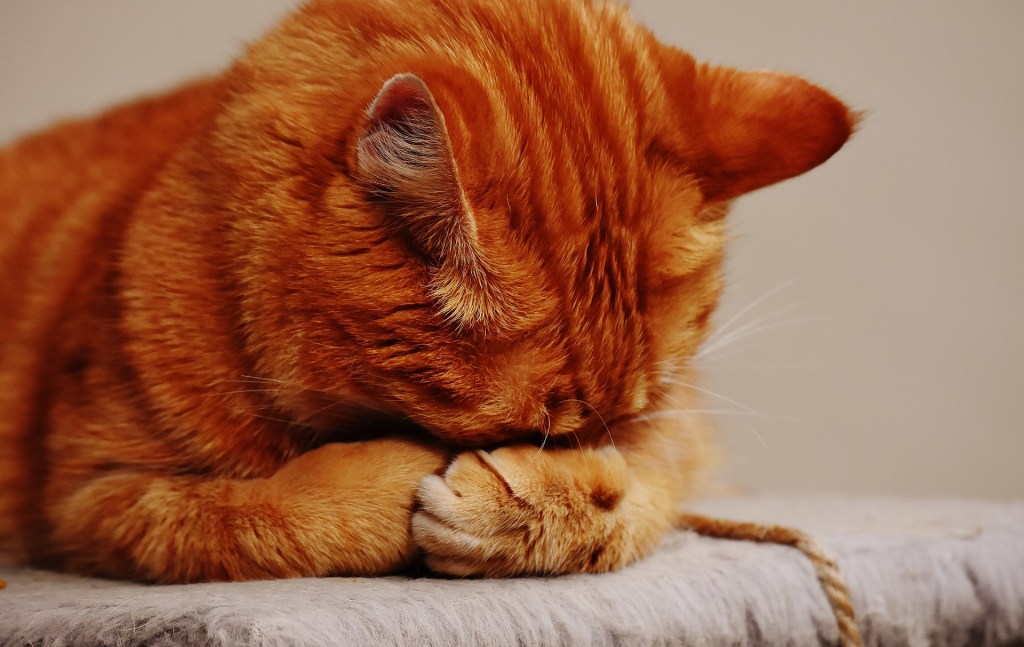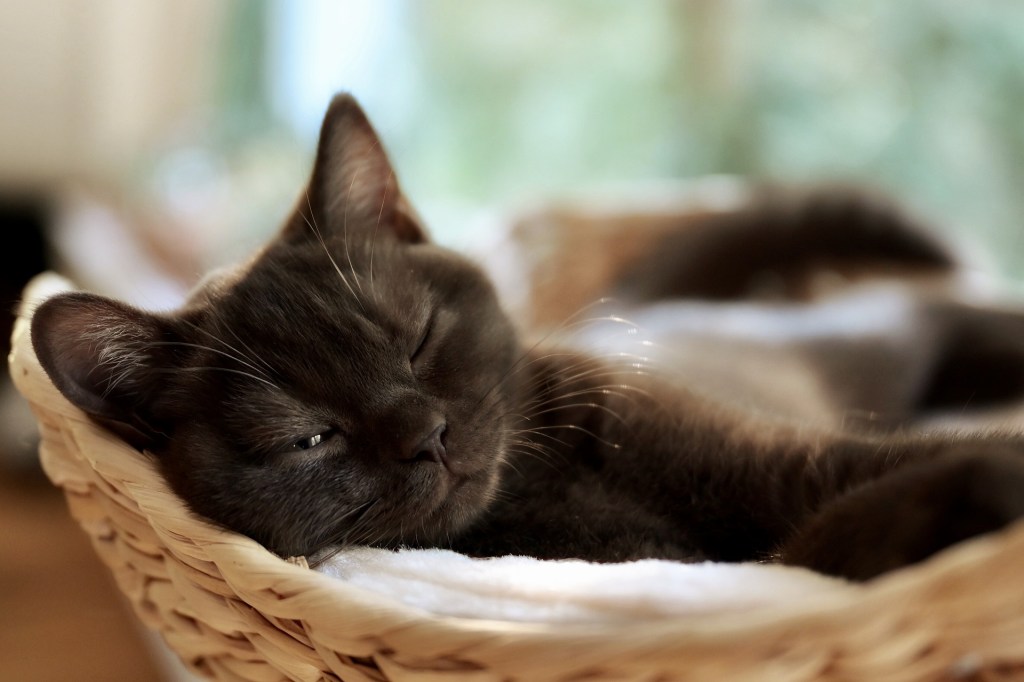Cats spend large amounts of time asleep, so seeing your kitty catch a catnap might not appear at all abnormal. Still, it’s important to keep a close eye on your cat’s sleep habits. Changes in your cat’s sleep can indicate potential injuries and illnesses, and they might be the first signs that something’s wrong with him.
The more you can familiarize yourself with what’s normal for your cat’s sleep, the faster you’ll be able to recognize even small changes when they occur. From snoozing more to seeking out new sleeping spots, there are a number of red flags indicating that your cat might not be feeling well and might benefit from a visit to the vet. Even paying attention to your cat’s sleeping positions when they’re sick will help you recognize similar patterns down the road.

Sudden increase in sleep
One key sign that your cat might not be feeling well is if he suddenly increases the amount of time he spends sleeping each day. A sudden increase in sleep can signal that your cat is unwell and trying to rest to support his body’s healing. Your cat might also start sleeping through key times of the day, like through mealtimes or playtime sessions. If your cat is an indoor-outdoor cat, you might notice him sleeping during the times when he normally would be outside exploring.
Difficulty getting up or lying down
If your cat isn’t feeling well, he might have a hard time getting up or lying down. If he’s dealing with pain, he might move around more slowly or even limp or walk awkwardly once he does get up. You might also notice that he spends a longer time than usual circling before he settles down.
Unusual sleeping positions
Sometimes cats’ sleeping positions when they’re sick can differ from their normal sleeping positions. Many cats will stretch out all the way or flop on their sides or even roll onto their backs when they’re relaxed and comfortable. Study your cat’s normal sleeping positions so that you can identify changes in them.
If your cat is uncomfortable, he might sleep differently. Your cat might sleep in more of a crouched position and might not ever stretch out. He might sleep in a way that keeps weight off a sore body part, and he might appear stiff or braced while he sleeps.
Difficulty waking
It should be easy to wake your cat by gently talking to him or making noise while you’re in the same room. If your cat doesn’t wake up easily or doesn’t seem aware of your presence, it could indicate a problem.
You can also try to wake your cat by opening a can of cat food. If normally your cat gets up for food readily but starts to ignore its presence, he’s probably ill and needs veterinary attention.

Choosing new sleeping spots
It’s natural for your cat to seek out different sleeping spots throughout the year. He might head to the bedroom when winter comes to stay warm, then move to the kitchen during the summer to take advantage of the sun shining in through the window. But if your cat starts abandoning his usual sleeping spots for unexpected new locations, it might indicate a problem.
Look for disruptions in your cat’s habits, for example, suddenly spending lots of time under the bed or in a closet. Cats who aren’t feeling well often seek out quiet spots where they can be alone. If all of a sudden your cat chooses secluded spots he doesn’t typically frequent, it might indicate that he’s ailing.
In conclusion
When you notice any of the above red flags, schedule an appointment with your vet right away. Your vet can thoroughly examine your cat and look for illnesses or injuries that might be causing his sleep abnormalities. Illnesses can progress quickly with cats, and many of them are stoic about being sick, so it’s important to act quickly and have your pet examined. In addition to changes in your cat’s sleep patterns, you might notice modifications in his behavior, like a decreased appetite, increased vocalizations, or an altered attitude that could indicate he’s not feeling well. By carefully observing your cat’s sleep habits, you can keep an eye on his health and quickly determine when he might need veterinary help.
Editors' Recommendations
- How much do hairless cats actually cost?
- Why do cats fight? They’re not just being jerks
- Why do cats cover their face when they sleep? This adorable behavior, explained
- How long do cats live? The answer may actually depend on their human parent
- What does it mean when cats purr? It’s more scientific than them just being happy


